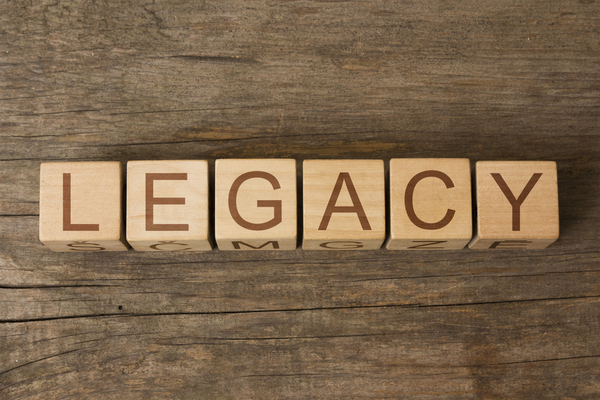Leaving an Ethical Will as Part of Your Estate Plan
In estate planning, we spend a lot of time working on the provisions of your will and trust documents. Expressing your intent in these documents is vitally important to ensuring your wishes are carried out. We also encourage our clients to talk to their loved ones about their planning. Letting your beneficiaries know your plans and wishes, at age-appropriate levels, can be the key to a smooth transition at a difficult time. Another way to express your wishes is through an “ethical will.” Not to be confused with a legal document, the ethical will is non-binding and usually takes the form of a letter (sometimes called a “legacy letter”) that shares your history, feelings, wishes, and advice.
The use of ethical wills dates to ancient biblical times and continues to be a significant part of Jewish tradition and education. While ethical wills began as letters from parents to their children, supplying moral instruction and life wisdom, they are often used more broadly today. Your ethical will might tell your life’s story, recording how the twists and turns you encountered led you to be the adult your children know as a parent. Alternatively, it might be a compilation of thoughts and commentary of all the essential things you want to say to your loved ones. Or, your ethical will could simply be an explanation of your final wishes—your chance to be fully prepared for the end of life. No matter the style you choose, an ethical will can have a lasting impact on your loved ones.
From the lawyer’s standpoint, we encourage the communication an ethical will provides, but caution against writing anything that contradicts your estate planning documents. Legally, your Last Will and Testament, trust, living will, advance directive, and powers of attorney will explain your wishes and make clear what decisions should be made on your behalf if you are unable to act. These documents are the cornerstone of your legacy and give your loved ones clarity. It is important that your ethical will not call into question the instructions, decisions, and gifts set out in your legal documents. Rather, your ethical will is a means to communicate ideas that are important to you and should complement the bequests and legal matters your estate planning documents address. Leaving an ethical will for your loved ones can help you say goodbye in a loving, meaningful way.
If you are ready to create your estate plan and want to explore making an ethical will as part of that plan, contact our office today. By talking through your goals and desires, we can help you implement a plan that is tailored to your personal family situation. By creating a sound estate plan, you can give your loved ones a roadmap for administering your estate; by creating an ethical will, you can leave them a piece of your heart. No matter which way you want to plan, our goal is to give you the peace of mind you deserve.

